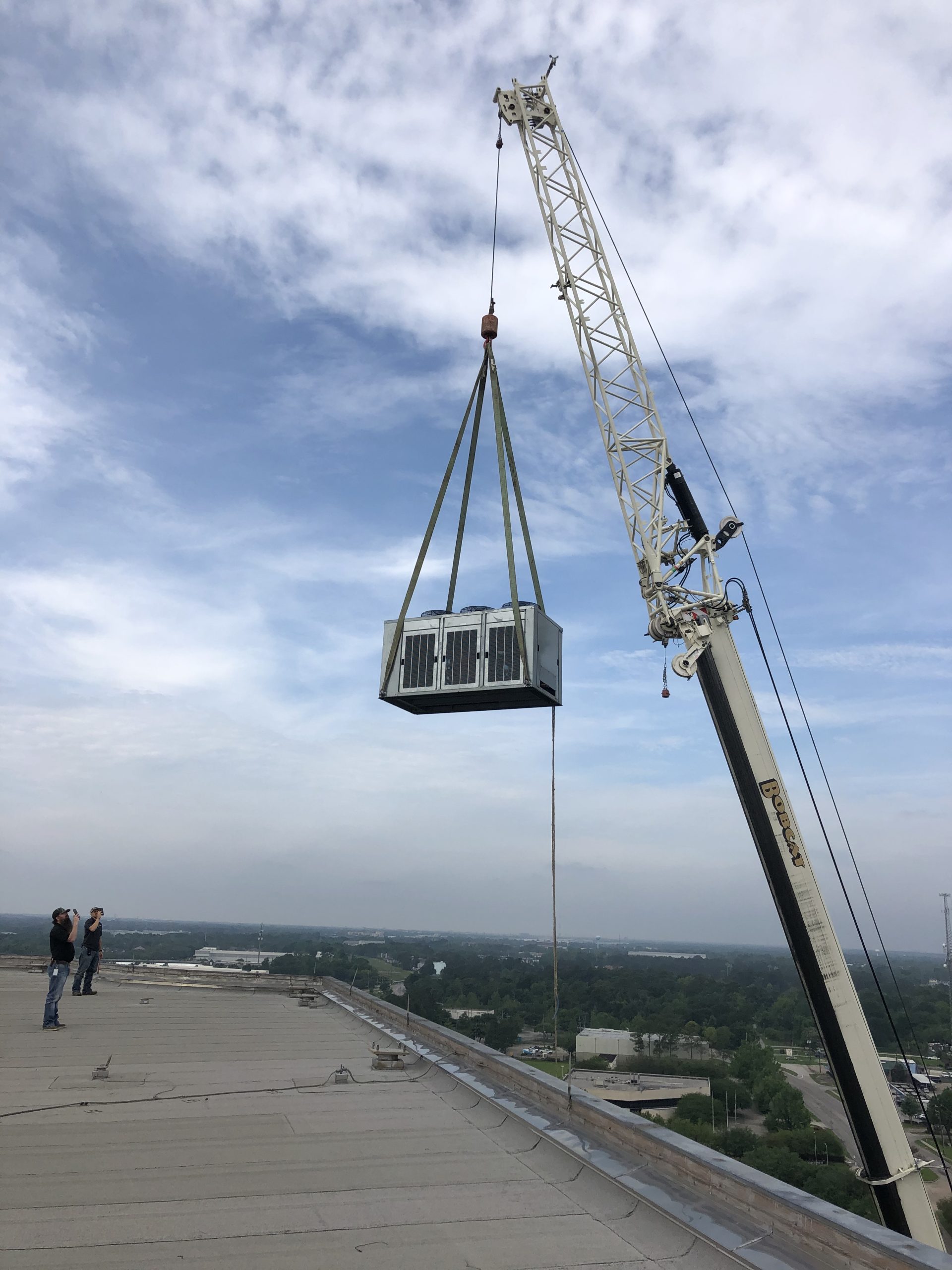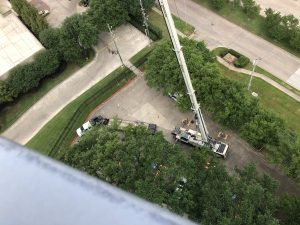
Renting a crane is a critical part of many construction and industrial projects, but it can also be complicated. A smooth crane rental experience begins with asking the right questions and ensuring your requirements align with the equipment provided. Here are the questions that will help you avoid delays, stay on budget, and maintain safety throughout your project with a crane rental in Houston.
How Much Weight Needs to Be Lifted?
Understanding the weight of the materials or equipment you need to lift is essential for selecting the right crane. Each crane has a maximum lifting capacity and exceeding it can cause severe damage to the equipment, delays, or even safety hazards.
To determine the correct weight, calculate the heaviest single load you’ll be lifting and include all attachments or rigging materials, such as hooks, slings, or spreader bars, that may add to the total weight. For instance, if you’re moving industrial machinery, account for the machine’s exact weight and any additional components being lifted alongside it.
Sharing precise load details with your crane rental provider ensures they can recommend a crane that can handle the job safely and efficiently. Working with an experienced provider also means they can suggest contingency options if the load weight is higher than expected.
How High Does the Load Need to Go?
The required lifting height is another critical factor in crane selection. Different cranes are equipped to handle varying heights, so providing accurate measurements is key.
For projects in urban areas, cranes may need to lift loads to the upper levels of high-rise buildings. In such cases, tower cranes or telescopic cranes are ideal. For shorter lifts, such as on residential or industrial sites, smaller cranes like mobile or truck-mounted cranes may suffice.
It’s also important to consider whether the lift involves horizontal reach in addition to vertical height. A longer reach may require specific crane types with extended booms or additional counterweights for stability. These considerations help ensure your crane can safely and effectively meet the project’s requirements.
What Does the Job Site Look Like?
The physical conditions of your job site will impact the type of crane you need. A thorough assessment of the terrain can prevent delays and safety issues.
For stable, flat job sites, most crane types will perform well. However, if your site involves uneven, sloped, or soft ground, you’ll need a crane designed for such conditions. For example:
- Rough Terrain Cranes: Equipped with large tires and sturdy frames, these cranes are perfect for rugged or uneven ground.
- Crawler Cranes: Built with tracks instead of wheels, these cranes provide excellent stability on soft or muddy surfaces.
Additionally, consider weather conditions that might affect the site, such as strong winds or heavy rains, which could impact crane operations. Discussing the site’s specifics with your crane rental provider ensures they can recommend the most suitable equipment.
Where Does the Crane Need to Travel?
The location and accessibility of your job site can significantly influence the crane rental process. Consider the following factors:
- Site Access: If the crane needs to travel through narrow streets, tight spaces, or areas with overhead obstructions like power lines, specialized planning may be required.
- Transportation Requirements: Larger cranes may need to be disassembled and transported in parts, which requires additional logistics, such as trailers or escorts.
- Permits: Urban projects often require permits to bring heavy equipment into the area. Your crane rental provider can guide you through the permit process if needed.
Ensuring smooth access to the site helps minimize downtime and eliminates potential hurdles during equipment setup.
Affordable Crane Rental Costs in Houston
Budgeting for a crane rental is an important part of project planning. While costs vary based on crane type, rental duration, and additional services, it’s essential to strike a balance between affordability and quality.
Houston offers a variety of crane rental providers, so comparing options is key. Transparent pricing is a good indicator of a reputable company. Look for providers who offer detailed quotes, including all associated costs such as delivery, setup, and permits.
Consider rental companies that offer flexible terms, such as hourly, daily, or long-term rates, to fit your project timeline. Choosing an experienced provider not only ensures competitive pricing but also reduces the risk of hidden fees or unexpected charges.
Why Choose the Right Crane Operator?
Selecting the right crane is just one part of ensuring a smooth rental experience; hiring a skilled and certified crane operator is equally crucial. A crane operator’s expertise not only affects the efficiency of the job but also ensures that all tasks are carried out safely and in compliance with regulations.
The Importance of Certification
Operating a crane requires specialized knowledge and training. Certified crane operators are trained to handle a wide variety of scenarios, from lifting irregular loads to navigating complex job sites. Their certification ensures they are familiar with safety protocols, equipment specifications, and site requirements. In Houston, operators must meet Occupational Safety and Health Administration (OSHA) standards, and working with a certified professional ensures compliance.
Contact Bobcat Contracting for Crane Rental in Houston
At Bobcat Contracting, we pride ourselves on delivering top-quality crane rentals in Houston. With a fleet of well-maintained cranes and a team of experienced operators, we are equipped to handle projects of any size or complexity. Contact us to discuss your needs and learn how we can help ensure the success of your next project.

